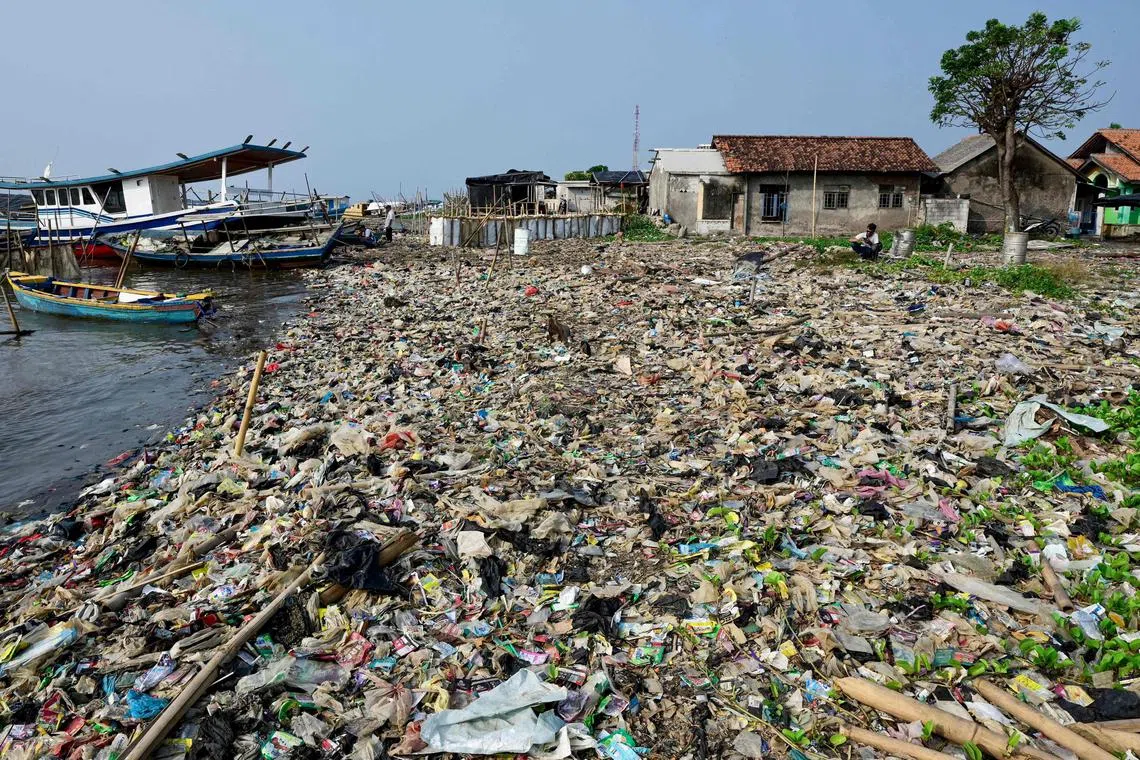World inches closer towards plastic pollution deal: UN
Sign up now: Get ST's newsletters delivered to your inbox

Global plastic production has more than doubled since the start of the century to reach 460 million tonnes.
PHOTO: AFP
PARIS – The world inched a step closer towards tackling plastic pollution, with the United Nations publishing the first draft of a binding treaty to tackle the scourge.
Some 175 nations are working to reach a landmark agreement by end-2024 that will curb plastic pollution, which ends up in oceans, birds’ stomachs and on mountain peaks. Microplastics have even been detected in blood and maternal milk.
Global plastic production has more than doubled since the start of the century to reach 460 million tonnes and could triple by 2060 if nothing is done. Only 9 per cent is currently recycled.
The draft deal, published by the Intergovernmental Negotiating Committee, will form the basis of fresh talks in the Kenyan capital, Nairobi, from Nov 13-19, the UN Environment Programme said on Monday.
The proposals include reducing the production of primary plastic polymers, which non-governmental organisations have been advocating for years.
Major plastic producers like the United States and Gulf countries could strongly oppose the measure. They prefer to promote reuse and recycling to reduce waste.
“The draft is a solid basis for the rest of the negotiations but includes both strong and weak options,” Mr Eirik Lindebjerg, global plastics policy lead at environmental pressure group World Wide Fund for Nature, posted on social media.
“Time is now for countries to choose ambition over failure!”
Mr Sam Chetan-Welsh, a senior policy adviser at Greenpeace, hailed the plan as “essential” to limit the production of plastic polymers.
But “the devil will be in the detail”, he cautioned on X, formerly known as Twitter.
“The most immediate fight will be whether we have a globally binding treaty or an agreement full of loopholes so no one has to do anything.”
After Nairobi, talks are due to continue in Canada in April 2024 before concluding in South Korea in late 2024. AFP


